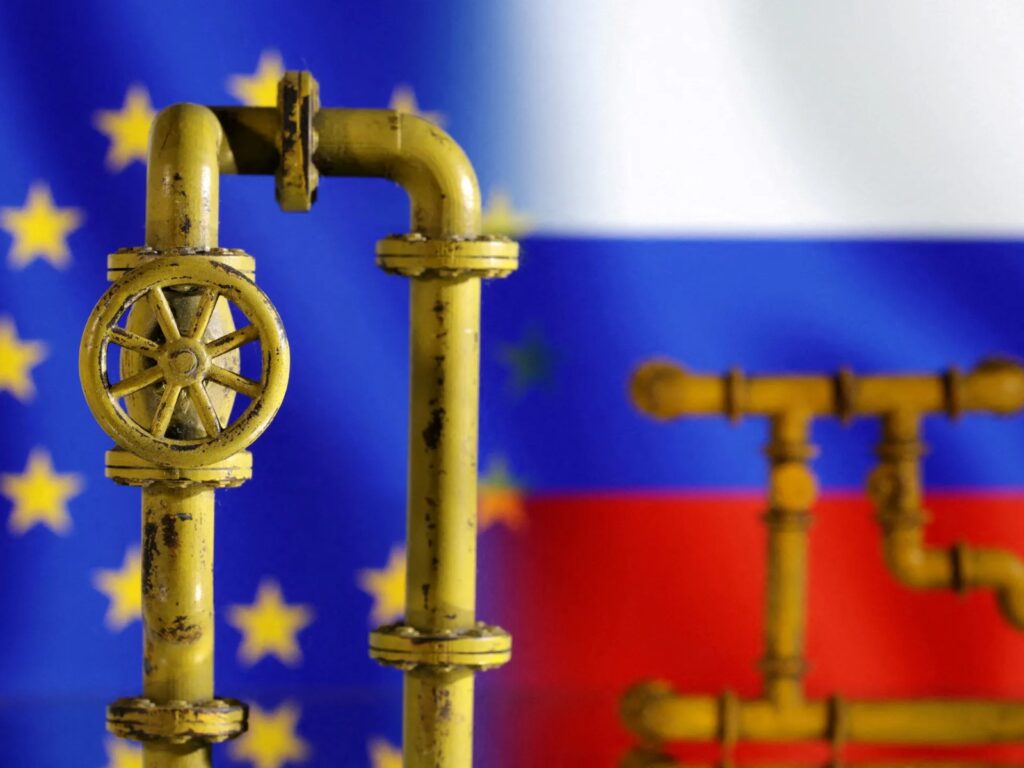
The supply of Russian gas to Europe through Ukraine has been officially stopped as the five-year gas transit agreement between the two nations expired on January 1, 2025. This significant development marks another major shift in energy relations amid ongoing geopolitical tensions.
According to news agencies, the agreement, initially signed to ensure the smooth delivery of gas to Europe, was not renewed. Ukraine, embroiled in a prolonged conflict with Russia, had earlier warned against extending the contract. Ukrainian Energy Minister confirmed the halt, stating that the country had officially ceased the transit of Russian gas. Meanwhile, European nations had already decided to reduce reliance on Russian gas in favor of alternative energy sources.
See More: Flour Prices Drop Drastically in Karachi!
Gazprom, Russia’s state-owned energy giant, also issued a statement confirming the suspension. The company clarified that the stoppage became effective at 8 a.m. Moscow time (05:00 GMT) on January 1, as the legal and technical terms of the agreement expired. Gazprom further emphasized that Ukraine’s refusal to renew the agreement left them with no choice but to halt the supply through Ukrainian territory.

This decision holds significant implications for Europe’s energy landscape. Over recent years, European countries have made deliberate efforts to diversify their energy resources, reducing dependence on Russian gas. The halt in supply through Ukraine underscores the growing geopolitical challenges and highlights the urgency for Europe to develop more sustainable and independent energy solutions.
The situation also reflects the deepening strain in Russian-Ukrainian relations, further complicated by the ongoing conflict. Both sides have been firm in their stances, with Ukraine leveraging its role as a transit hub to exert pressure, while Russia has explored alternate routes and partnerships to continue its gas exports.
This development is expected to impact global energy markets, driving discussions about energy security and fostering a shift towards renewable resources and alternative energy networks. As Europe adjusts to this new reality, the focus will remain on ensuring stable energy supplies for its citizens while navigating the broader political and economic implications of the halt.
This transition marks a critical point in the global energy dialogue, with lasting effects on policies and international relations in the years to come.



1 thought on “Russia Halts Gas Supply to Europe via Ukraine!”